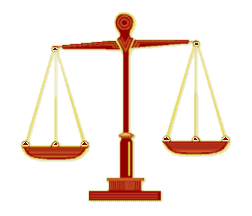Pleading facts for kids
Pleading is the very first step in a lawsuit. It's when the people involved in a legal case officially tell the court their side of the story and what they are asking for. Think of it like the opening statements in a debate, but written down and given to a judge.
The lawsuit usually begins when one person or group, called the plaintiff, files a special document called a complaint. This complaint is the first official paper that starts the whole legal process. It explains what the plaintiff believes happened and why they think they deserve something from another person or group.
The complaint will list the important facts of the situation. It also states the reasons why the plaintiff believes they have a legal right to ask the court for help. Finally, it includes what the plaintiff wants the court to do, like asking for money or for someone to stop doing something. Sometimes, this complaint is called a petition. In that case, the person filing it is called the petitioner, and the other person is the respondent.
Contents
What Are Other Important Legal Papers?
When a lawsuit starts, different kinds of official papers are filed with the court. These papers help everyone understand what each side is claiming and what they want.
The Answer
After a plaintiff files a complaint, the person or group being sued, called the defendant, usually files a document called an answer. In this paper, the defendant responds to each statement in the complaint. They will either agree with the facts, disagree with them, or say they don't know if the statement is true. The answer is how the defendant officially tells the court their side of the story and why they believe they are not responsible. In some places, like England and Wales, this paper is called a defence.
Bringing in More People
Sometimes, a defendant might believe that someone else is also responsible for the problem. In this situation, the defendant can file a cross-complaint or a third-party complaint. This is a way to bring other people or groups into the lawsuit, so the court can decide if they also played a part in what happened.
Making Your Own Claim
A defendant might also have a claim against the plaintiff. For example, if the plaintiff says the defendant owes them money, the defendant might say, "No, actually, you owe me money!" When a defendant makes their own claim against the plaintiff in the same lawsuit, it's called a counter-claim. This helps the court sort out all the related issues at once.
 | Victor J. Glover |
 | Yvonne Cagle |
 | Jeanette Epps |
 | Bernard A. Harris Jr. |


